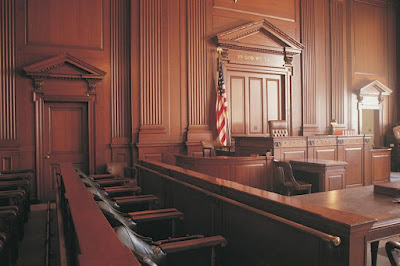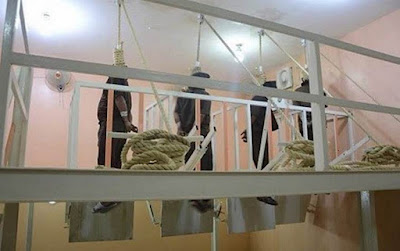 |
Execution chamber
at the Tokyo Detention Center |
Japan might turn to a new method for executing death row prisoners amid criticism that hanging, which has been used for more than 130 years, is a cruel and painful punishment in a modern age where there may be more humane methods.
Justice Minister Makoto Taki and the two politicians who serve as his deputies--a senior vice minister and a parliamentary secretary--have been considering whether to change the method in closed-door discussions.
“We do not have any specific direction for the discussions, but we will gather a broad range of information,” Taki told a news conference on Aug. 7, four days after he ordered the executions of two death row inmates.
The ministry, for example, is studying the method of capital punishment in the United States, which replaced scaffolds with electric chairs and gas chambers, for the most part, and has introduced lethal injection in most states. But officials said failed cases of injections have been reported.
The ministry is looking into the issue because the lay judge system, introduced in 2009, has raised public interest in capital punishment. Under the system, citizens serve as judges in criminal cases that could result in death sentences.
Whether death by hanging constitutes cruel punishment prohibited under the Constitution was discussed during a lay-judge trial over an arson-murder case held at the Osaka District Court in October.
The defense argued that hanging causes violent pain and severe physical damage, countering the common belief that the hanged would immediately lose consciousness and not feel pain.
The lawyers invited a foreign forensic scientist familiar with suicide by hanging and other experts and argued that hanging can cause the neck to be severed.
The Supreme Court ruled in 1955 that hanging is constitutional, saying it sees “no reason that it is cruel from a humanitarian point of view.”
Source: The Asahi Shimbun, August 13, 2012


.jpg)







